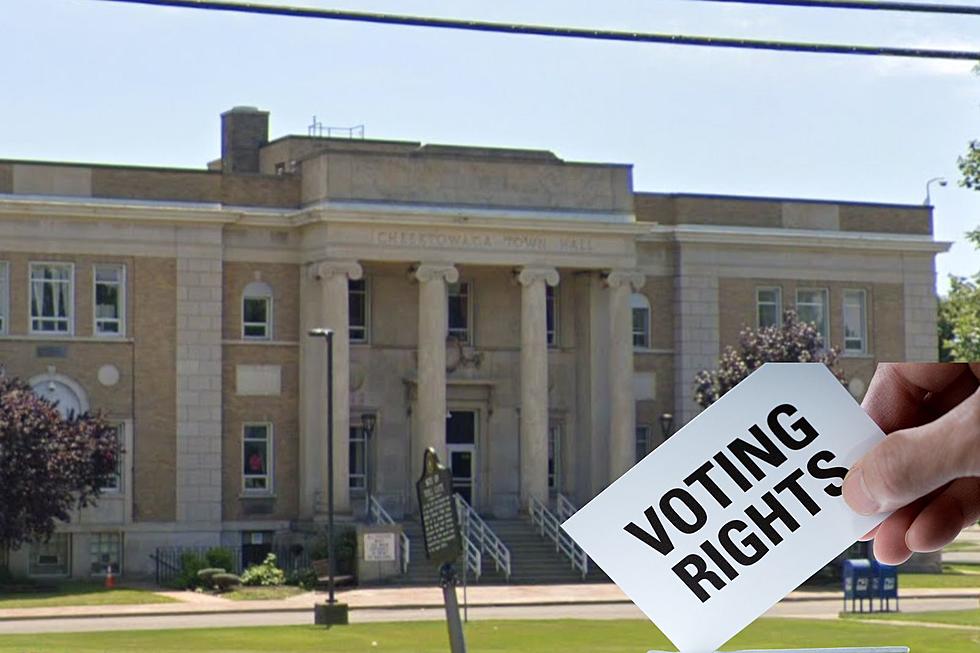![How The Supreme Court Rulings On Voting Rights Act, Same-Sex Marriage + Affirmative Action Affect US! [AUDIO]](http://townsquare.media/site/11/files/2013/07/daveid-bullock-march.jpg?w=980&q=75)
How The Supreme Court Rulings On Voting Rights Act, Same-Sex Marriage + Affirmative Action Affect US! [AUDIO]
The Supreme Court Justices wrapped up the term with a blockbuster week of decisions on affirmative action, the Voting Rights Act and same-sex marriage. I talked with human rights activist David Alexander Bullock about how these rulings could have lasting effects on democracy, diversity and individual rights.
On Monday, June 24, the Supreme Court returned the case on the affirmative action admissions policy at the University of Texas at Austin to a lower court, thereby avoiding a major ruling on the issue.
The court allowed affirmative action to survive in college admissions but imposed a tough legal standard, ruling that schools must prove there are “no workable race-neutral alternatives” to achieve diversity on campus.
Then, on Tuesday, in a 5-4 vote, Supreme Court justices limited the historic Voting Rights Act of 1965, which Congress passed during the height of the civil rights movement and renewed in 2006.
The court ruled that Section 4 of the VRA is unconstitutional. Section 4 basically gives the federal government the power to block states that are known for racial discrimination from making changes to the election laws. This include voter ID requirements and cutting early voting hours.
NAACP President Ben Jealous called the decision "outrageous" because it makes minority voters "more vulnerable to the flood of attacks we have seen in recent years."
Former speaker of the House Nancy Pelosi said of the ruling:
It’s really a step backward, and it’s not a reflection of what’s really happening in our country in some of these places.
Listen to what D. Alexander Bullock had to say on the issue of voting rights.
On Wednesday, June 26, the Supreme Court struck down The Defence of Marriage Act, the law barring the federal government from recognizing same-sex marriages legalized by the States. DOMA, signed by President Bill Clinton in 1996, prevented same-sex married couples from receiving the hundreds of benefits available to straight married couples under federal law.
As of Wednesday, the Supreme Court ruled that DOMA:
...humiliates tens of thousands of children now being raised by same-sex couples" and "makes it even more difficult for the children to understand the integrity and closeness of their own family and its concord with other families in their community and in their daily lives.
President Barack Obama offered this statement about the decision:
This was discrimination enshrined in law. It treated loving, committed gay and lesbian couples as a separate and lesser class of people. The Supreme Court has righted that wrong, and our country is better off for it.
Let's hear what the Spokesperson for the Change Agent Consortium had to say on the issue and what the African American community can learn from the gay rights movement.
We would love to read your thoughts about these three historic rulings in the comments section below or on Twitter (@JazzyTOnAir).
Thank you for you attention to these important matters.
More From 93.7 WBLK





![10 Barn Weddings You Can Have in Western New York [LIST]](http://townsquare.media/site/10/files/2016/05/Barn-Weddings-Getty.jpg?w=980&q=75)
![Look Where Buffalo Ranks in Top 10 Tailgate Cities [LIST]](http://townsquare.media/site/10/files/2015/10/Buffalo-Bills-Tailgating.png?w=980&q=75)
![The 6 Most Infamous Serial Killers From Buffalo and WNY! [List]](http://townsquare.media/site/11/files/2016/03/Police-Tape.jpg?w=980&q=75)

